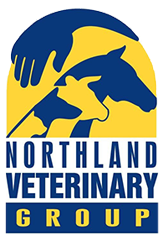BVD – Testing, and control were among the topics covered at the recent NZ Vet Association Dairy Vets Conference in Hamilton.
We continue to see many herds that have had high exposure to BVD. In fact the antibody levels in most of the herds we deal with are high and have been so for several years, although very few actually contain carriers in the milking herd.
This means that most herds continue to be exposed to BVD somehow – either at grazing, from bulls or dry stock, or through fence lines with neighbouring properties.
It also means that there is a high probability that some of their R1 and R2 heifers may have been born with the virus and be lifetime carriers ( = PI or Persistently Infected).
As 60% or so of these animals are lost to the herd by age 3, you really do not want to be spending money rearing them if they are not going to stay with you a while.
The other risk with these animals is that they can infect others. If this occurs in the 1st 1/3 of pregnancy, another generation of carriers will be born, pregnancy rates may be affected, and another generation of carriers produced.
While calving is not the ideal time to be doing this, BVD needs to be sorted out before mating starts.
It is important, therefore, to screen these R1 and R2s, either by ear notch testing all of them for virus, or a blood test of 15 or so to see they have been exposed to virus. If they have, ear notching the whole mob is required. Where carriers are detected, decisions need to be made on culling and / or vaccinating if required.
If BVD went through your herd in the last couple of years, ear-notch testing this seasons calves may be necessary. While the advice USED to be to do them at birth, this has now been changed. Calves need to be ear notch tested when OLDER than 35 days, not before. If you do need to test younger animals, blood samples are required
Bulls and BVD: It is critical that you get bulls tested to ensure they are not PIs AND YOU GET THEM VACCINATED BEFORE THEY GET NEAR THE HERD!!!!!.
This is the most important thing you can do to protect your herd from BVD.
WE STRONGLY RECOMMEND YOU INSIST ANY SERVICE BULLS HAVE BEEN TESTED CLEAR OF BVD VIRUS & HAVE BEEN FULLY VACCINATED AGAINST BVD BEFORE YOU BUY THEM.
Insist on seeing the paperwork (vets certificate of lab results AND full 2 dose vaccination) to prove both of these have been done before you sign the cheque.


